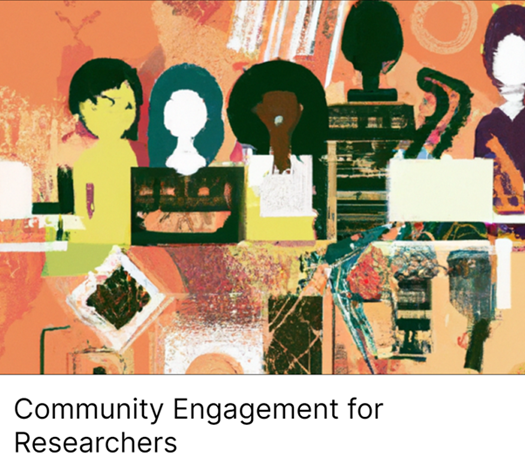As researchers, we often invest countless hours in conducting research and analysing data. However, when it comes to sharing our findings with non-scientific audiences, we may face challenges in translating our research into public awareness and engaging with communities effectively. Public engagement goes beyond simply communicating scientific facts; it involves two-way dialogue and building relationships with community members to understand their perspectives and needs. Rather than merely ticking boxes, we should strive to develop meaningful dialogues with diverse groups.

Finding an easy answer to this challenge is unlikely, but I hope the handbook Community Engagement for Researchers can help to provide some support. I wrote this handbook to provide step-by-step guidelines for building relationships and trust with communities. It is aimed primarily at researchers who want to engage with communities in their work, but it is also useful for anyone interested in community engagement.
In the handbook, I draw on my experiences collaborating with various communities, including activist organisations, youth groups, and mental health support networks. I provide advice on identifying relevant communities, developing trusting relationships through open communication, conducting participatory research, and effectively disseminating findings.
The handbook covers practical topics such as:
- How to build rapport with community leaders and members
- Running inclusive workshops and co-creating research agendas
- Strategies for disseminating research through media, social media, and alternative formats
- Measuring the impact of community-engaged research
Community engagement benefits researchers by helping them create more meaningful work, build trust, and make a positive impact. For example,
researchers working with local housing authorities may discover innovative practices that help to address a localised opioid crisis, benefiting both the scientific community and local populations. Likewise, by involving communities and comprehending the viewpoints of community members, researchers can
address substantial obstacles in recruiting diverse populations for genetic studies. Such barriers may include mistrust of researchers stemming from past unethical research practices and persistent social inequalities.
Engaging with communities can also help researchers identify new research questions and opportunities, as well as provide access to resources and expertise that may not be available within academia. In the past two decades, the consensus on involving patients as collaborators in biomedical research has steadily grown, with it now widely perceived that working with such communities offers a unique viewpoint on health priorities and can even
empower them to identify and address their own health needs and disparities, while enabling researchers to align their priorities with those of the community.
Additionally, engaging with communities can help researchers communicate their findings to a wider audience and
increase the impact of their work. Provided that it is done ethically and responsibly, community engagement is an important aspect of responsible research practice that can benefit both researchers and the communities they work with.
I hope that you engage with the full handbook (especially because it is available as a free download), but I have also summarised the handbook into the following five steps that researchers might take to translate their research into public awareness and engage with communities in a meaningful way:
- Identify your target audience or community and tailor your communication strategies to their needs and interests. For example, use social media platforms popular with that community or hold workshops in accessible community spaces.
- Use clear and accessible language: avoid jargon and technical terms to make your research findings easy to understand. For instance, explain scientific concepts through analogies and illustrations.
- Engage with communities meaningfully by involving them in the research process, listening to their concerns, and incorporating their perspectives. You could collaborate on designing research questions or analysing data.
- Get creative! Use art, music, or other forms of media to communicate your research findings. You might produce a play conveying key research insights or a board game bringing research to life.
- Evaluate the impact of your engagement efforts with quantitative and qualitative methods, such as surveys or focus groups. Ask community members directly about how your engagement has influenced their awareness and perceptions. Speaking from my own experience as a researcher and practitioner I know that engaging different communities with my work has been genuinely life-affirming. As well as helping to keep me humble and grounded in my approach, it has also led to long-term collaborations, partnerships, and friendships that in turn have resulted in peer-reviewed publications, successful funding applications, and keynote requests from all over the world. In other words, asides from the purely altruistic reasons for why we should better engage with a variety of communities, doing so can have benefits for our own personal and professional lives as well.
I hope that Community Engagement for Researchers acts as a rallying call to transform the way you engage others with your work. By following the guidelines and taking proactive steps to connect with communities, you will not only bridge the gap between research and public awareness, but also empower communities and inspire change. And if you have any thoughts or comments for how to develop more effective community engagement, or an idea for a future collaboration, then please get in touch as I would love to hear from you.
Comments
If you are a British Pharmacological Society member, please
sign in to post comments.